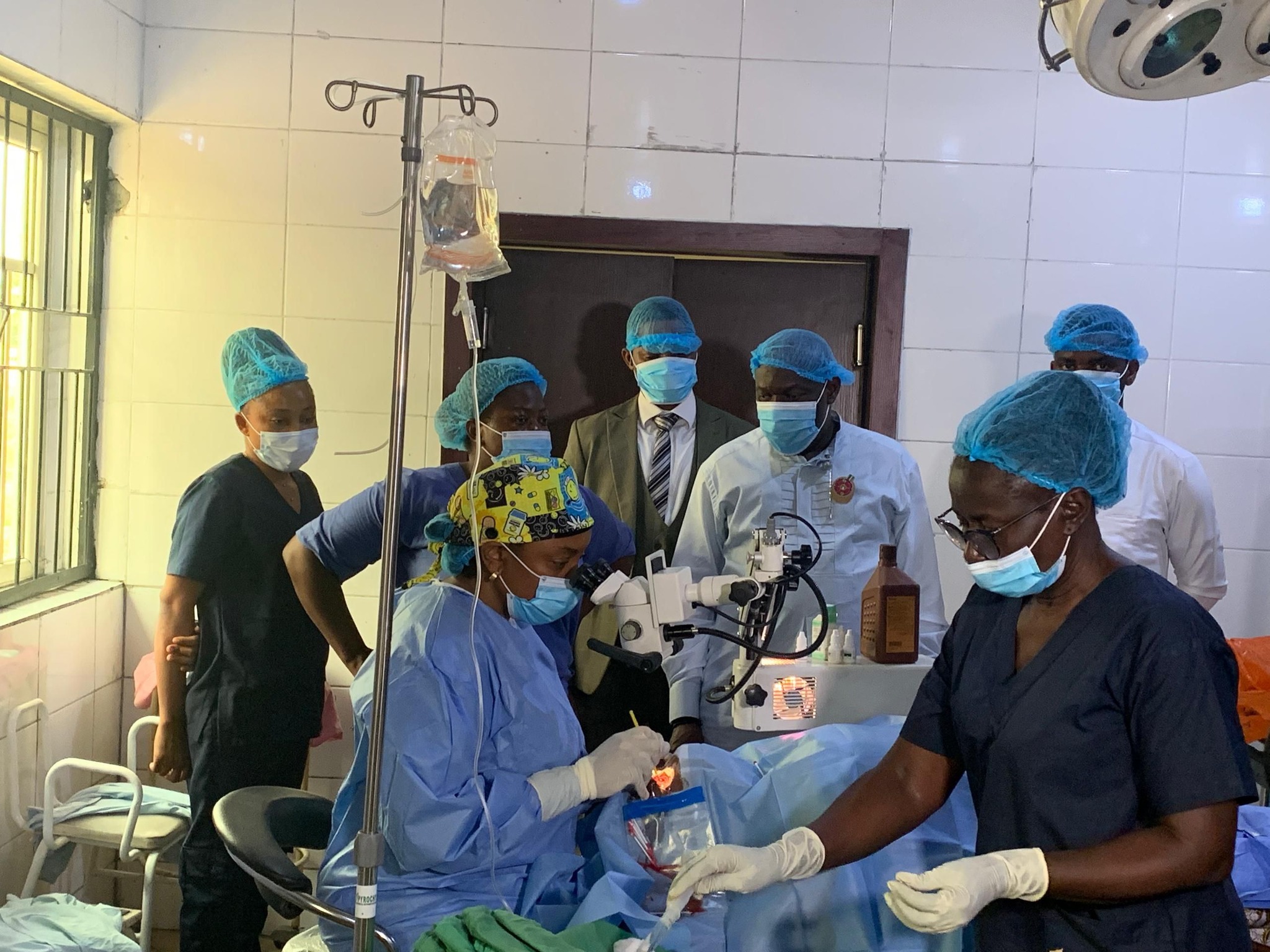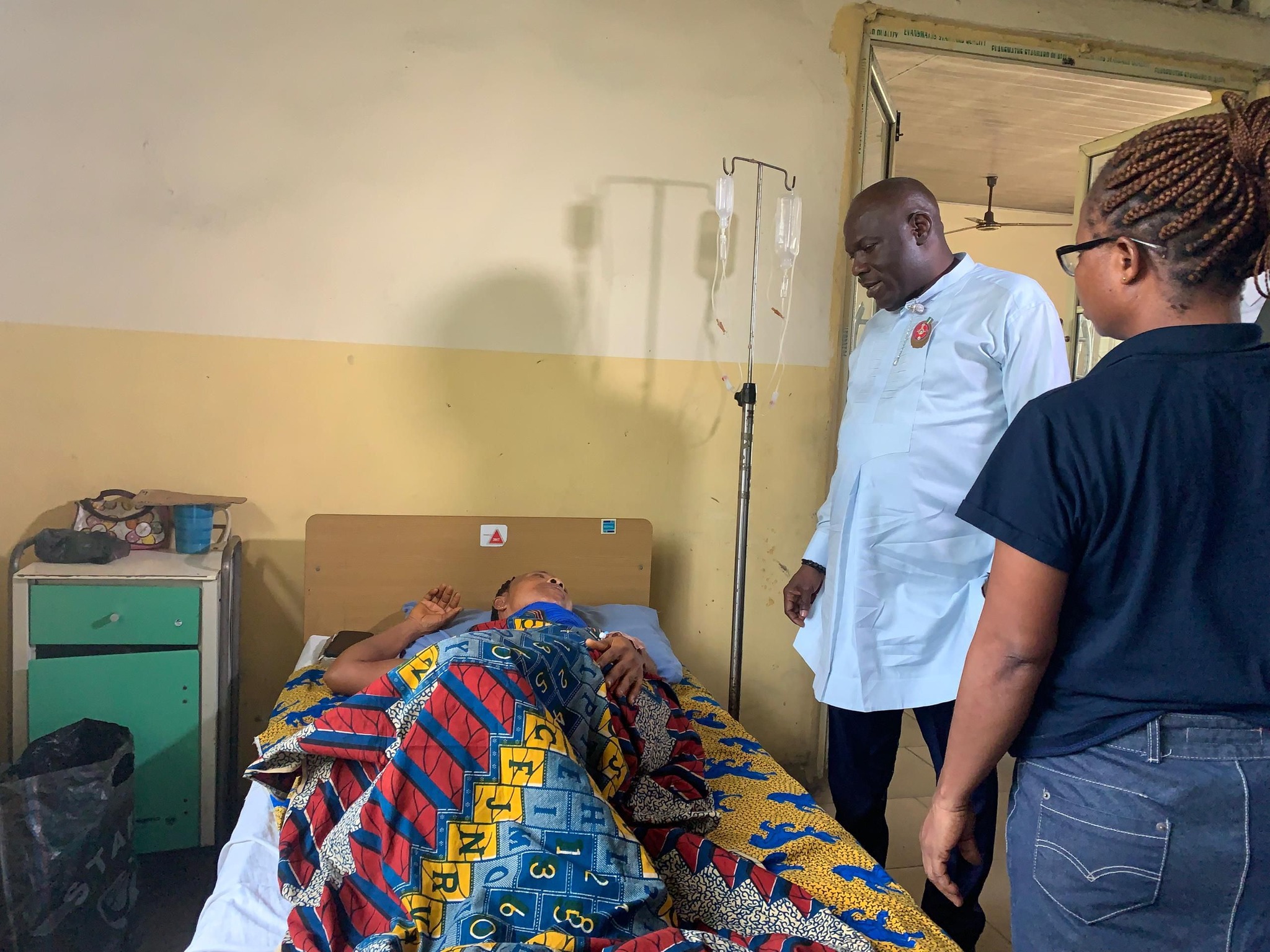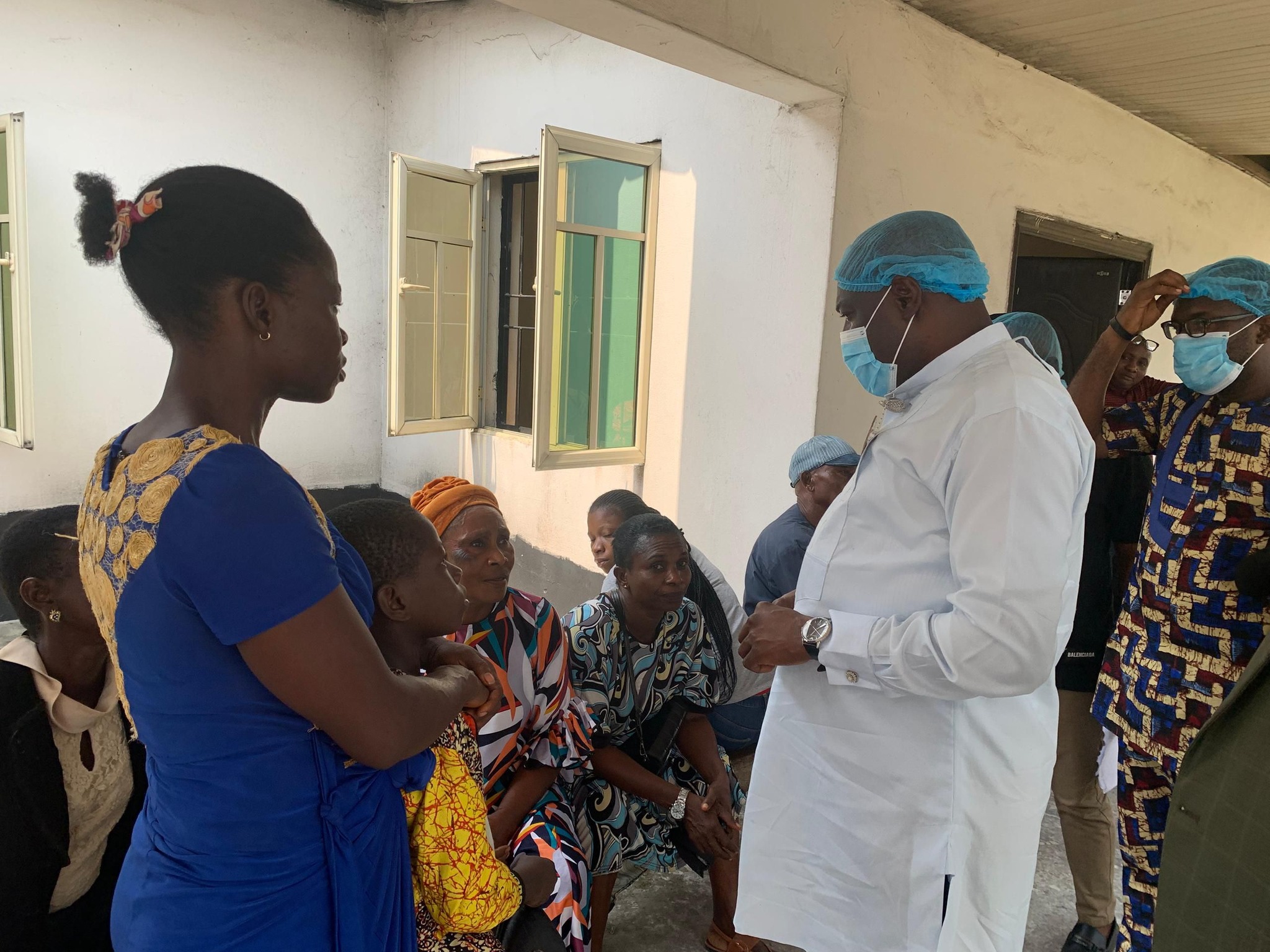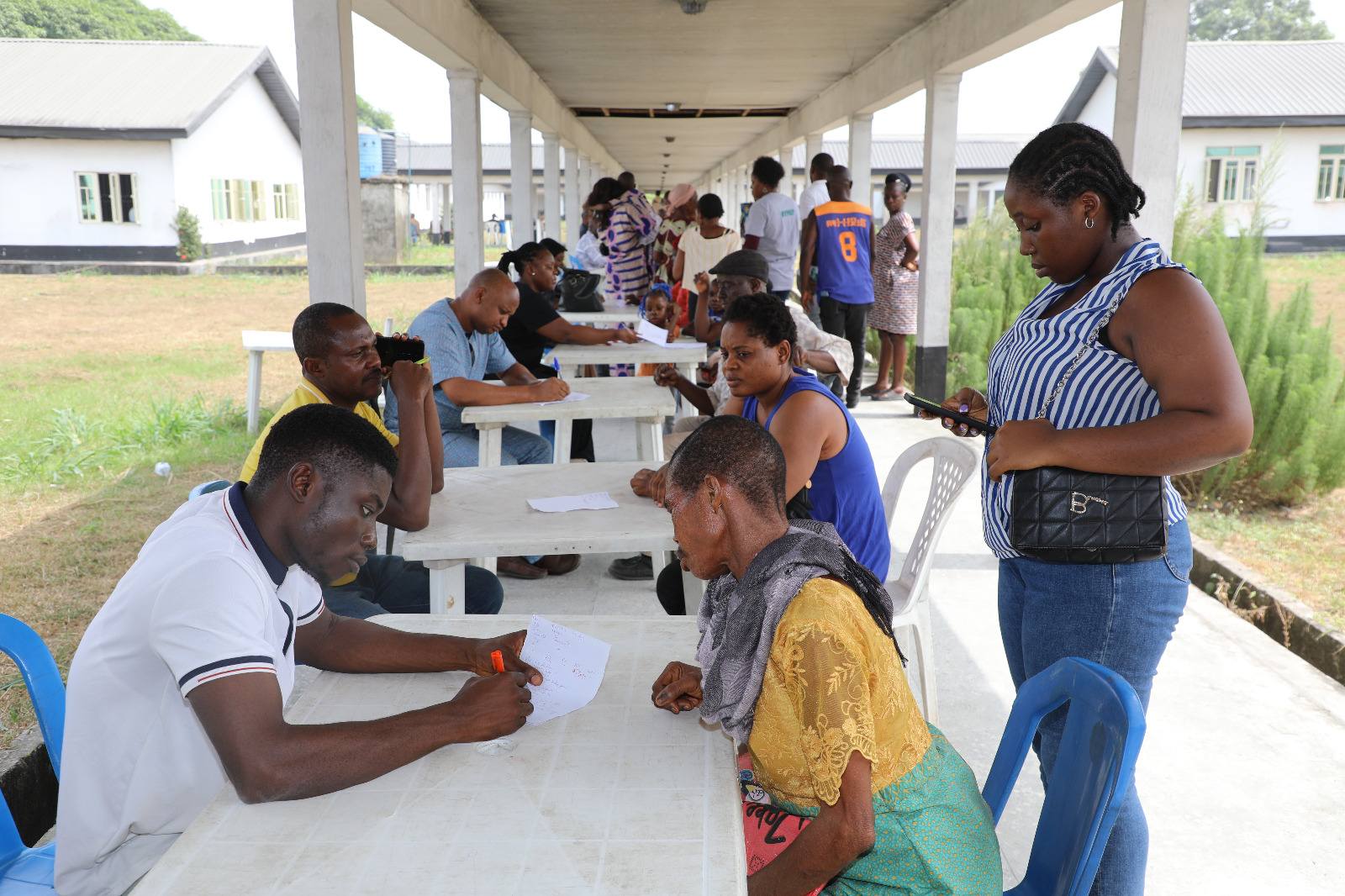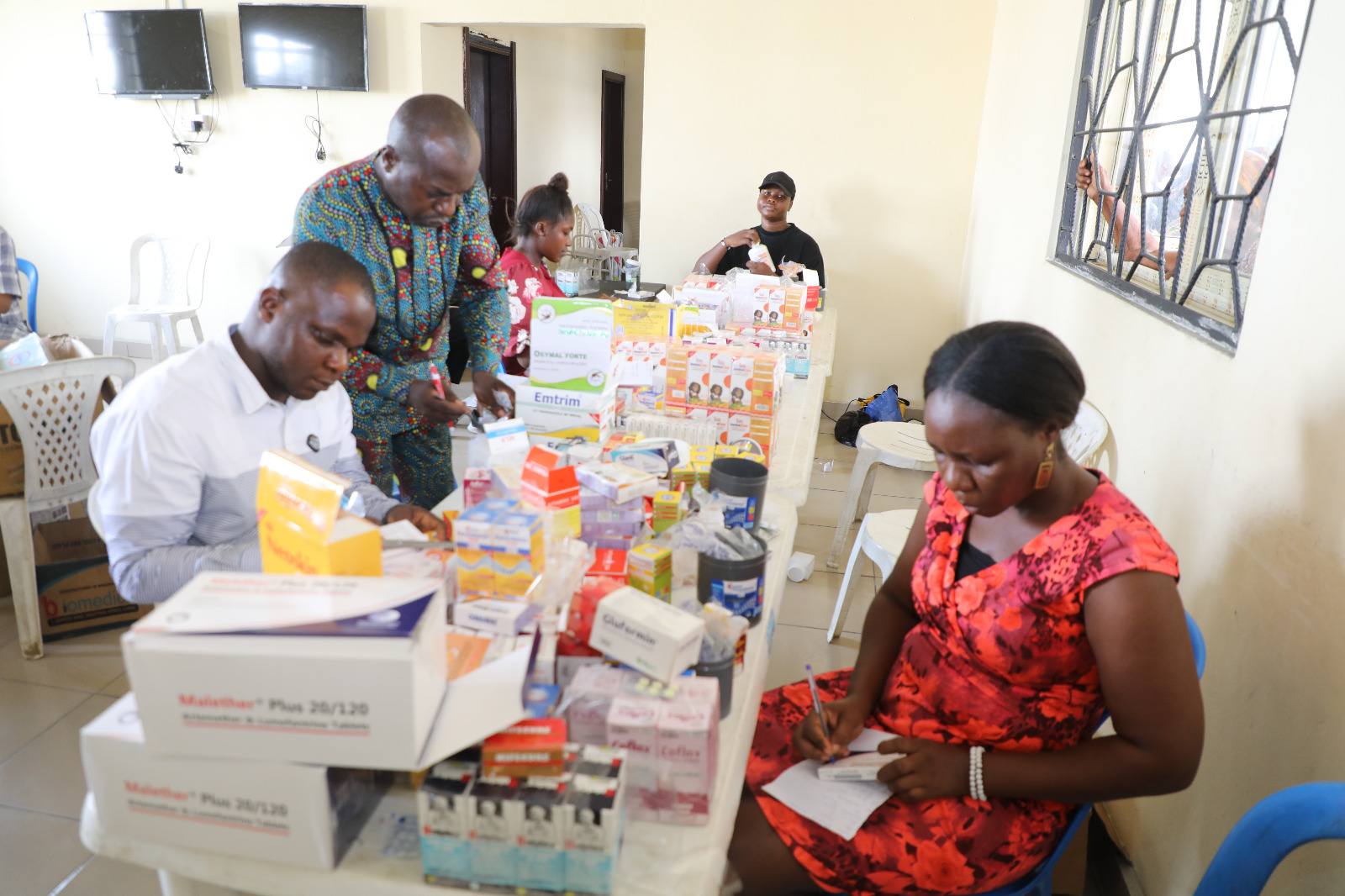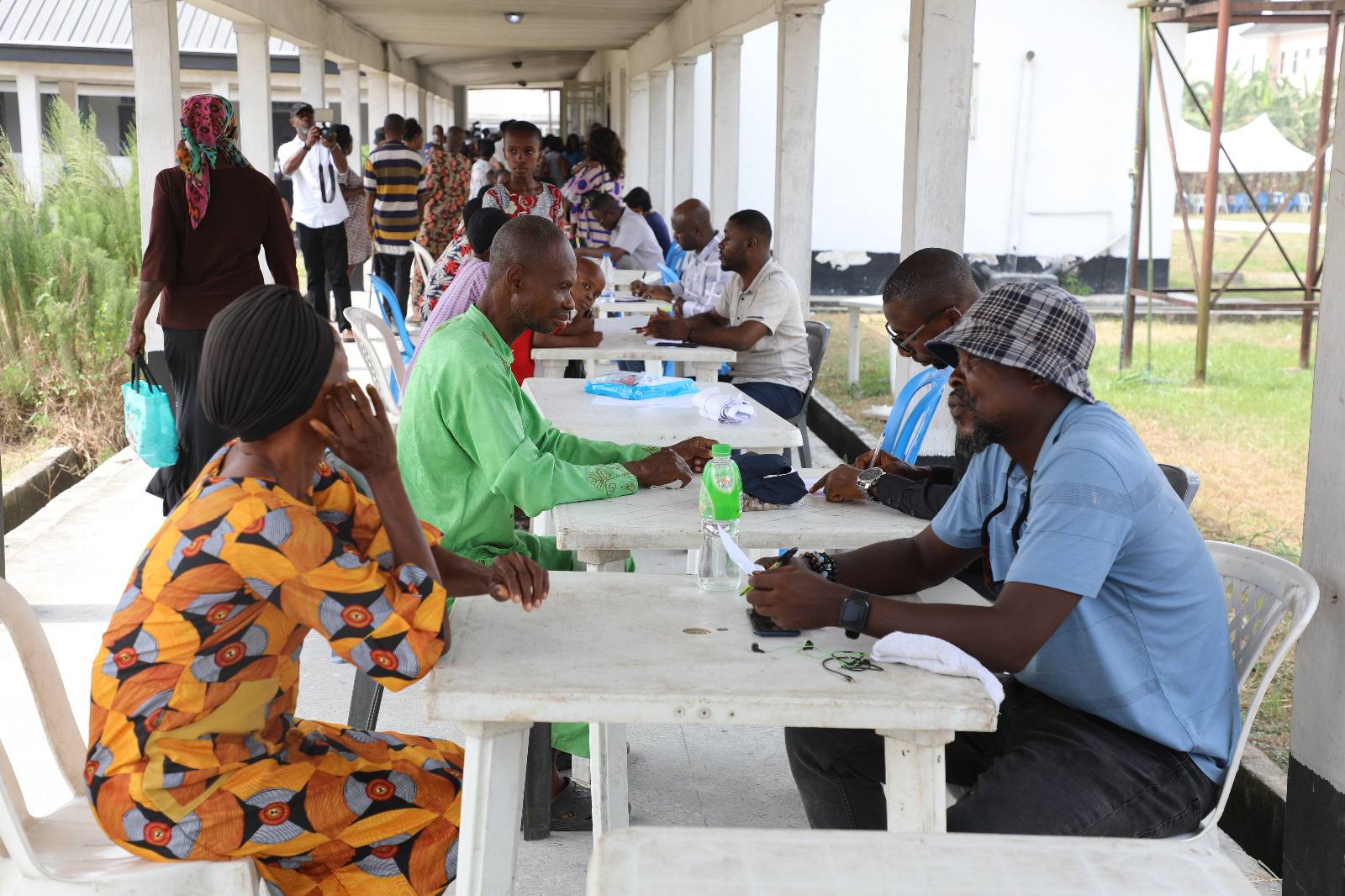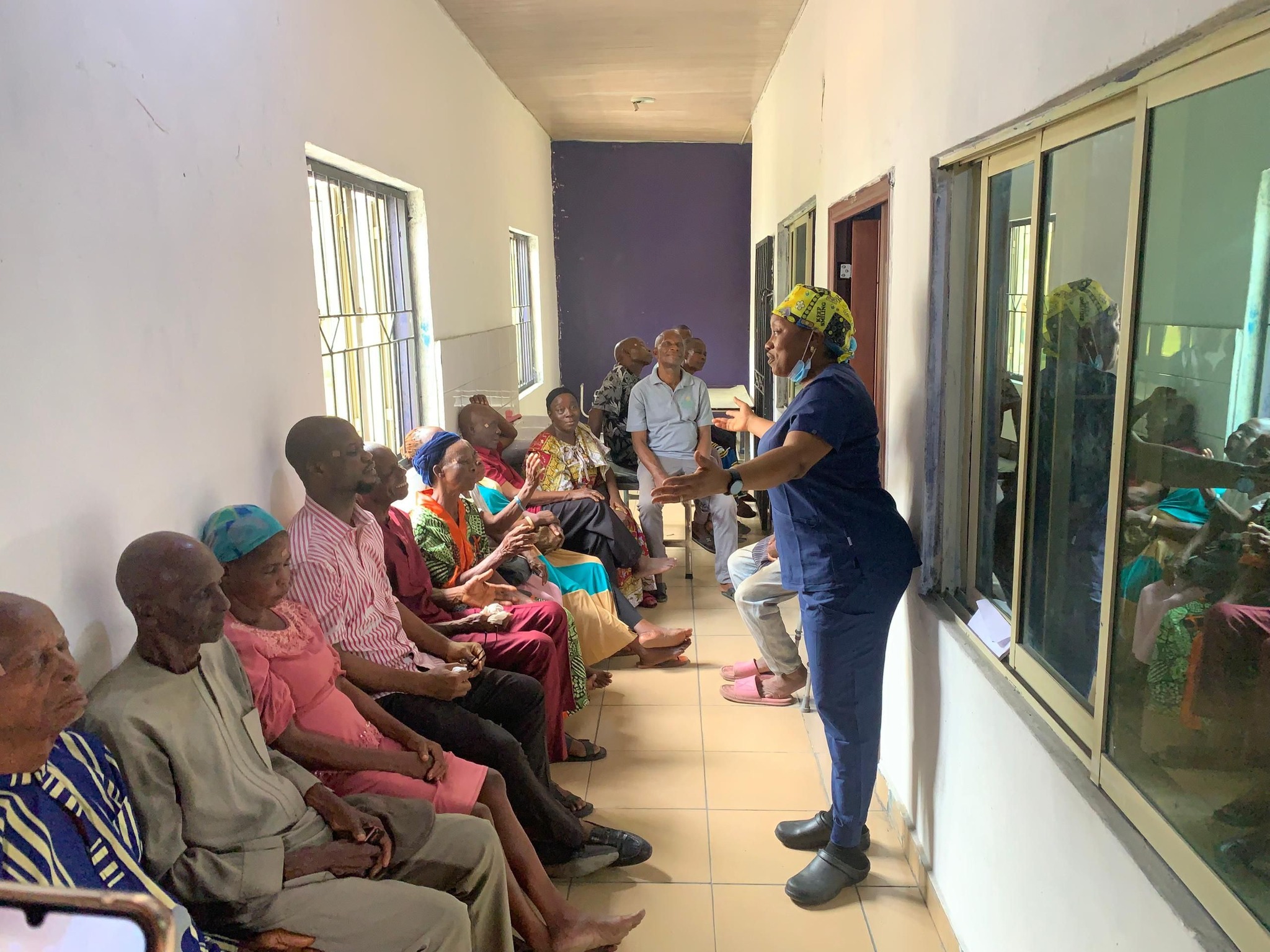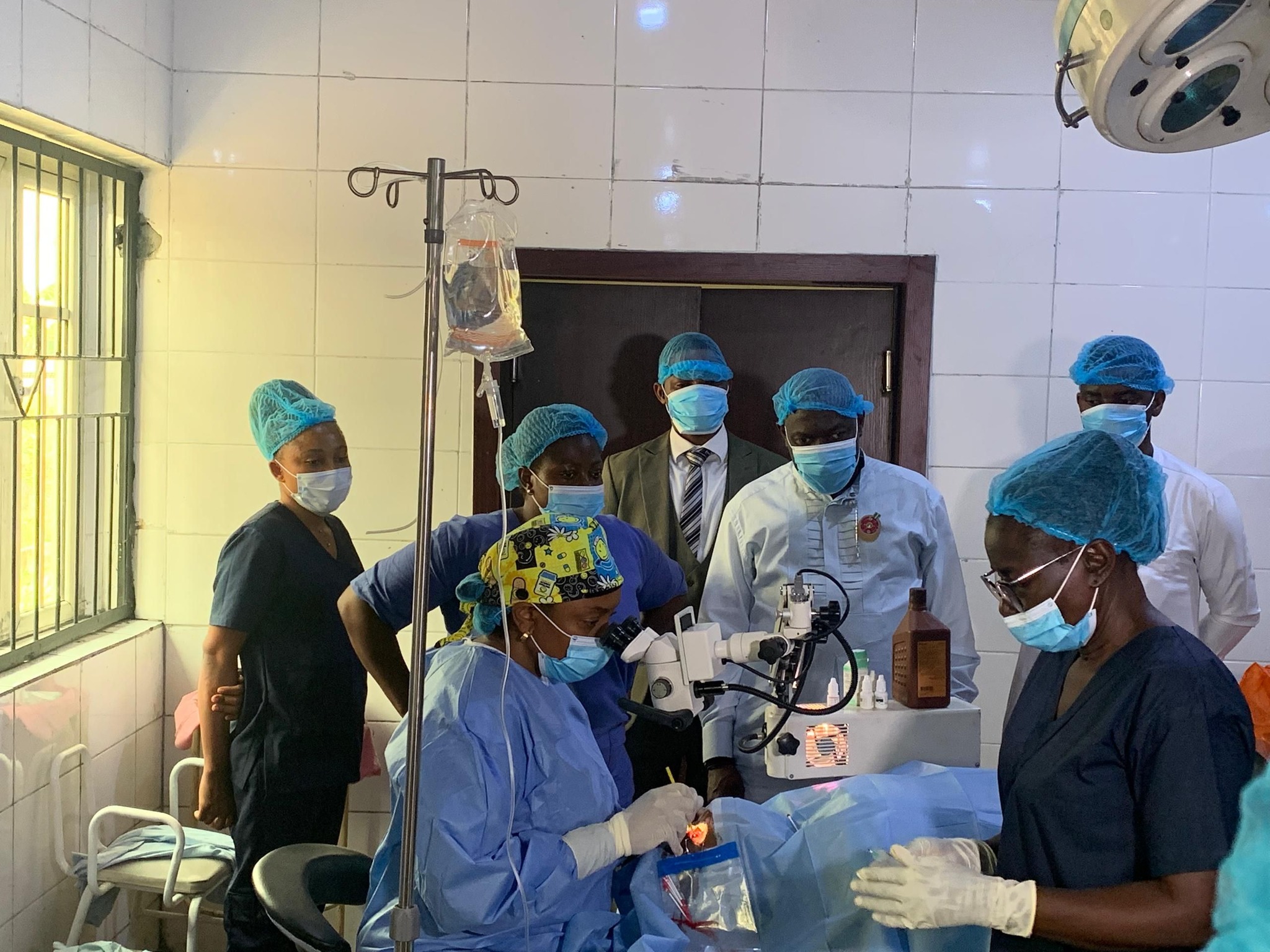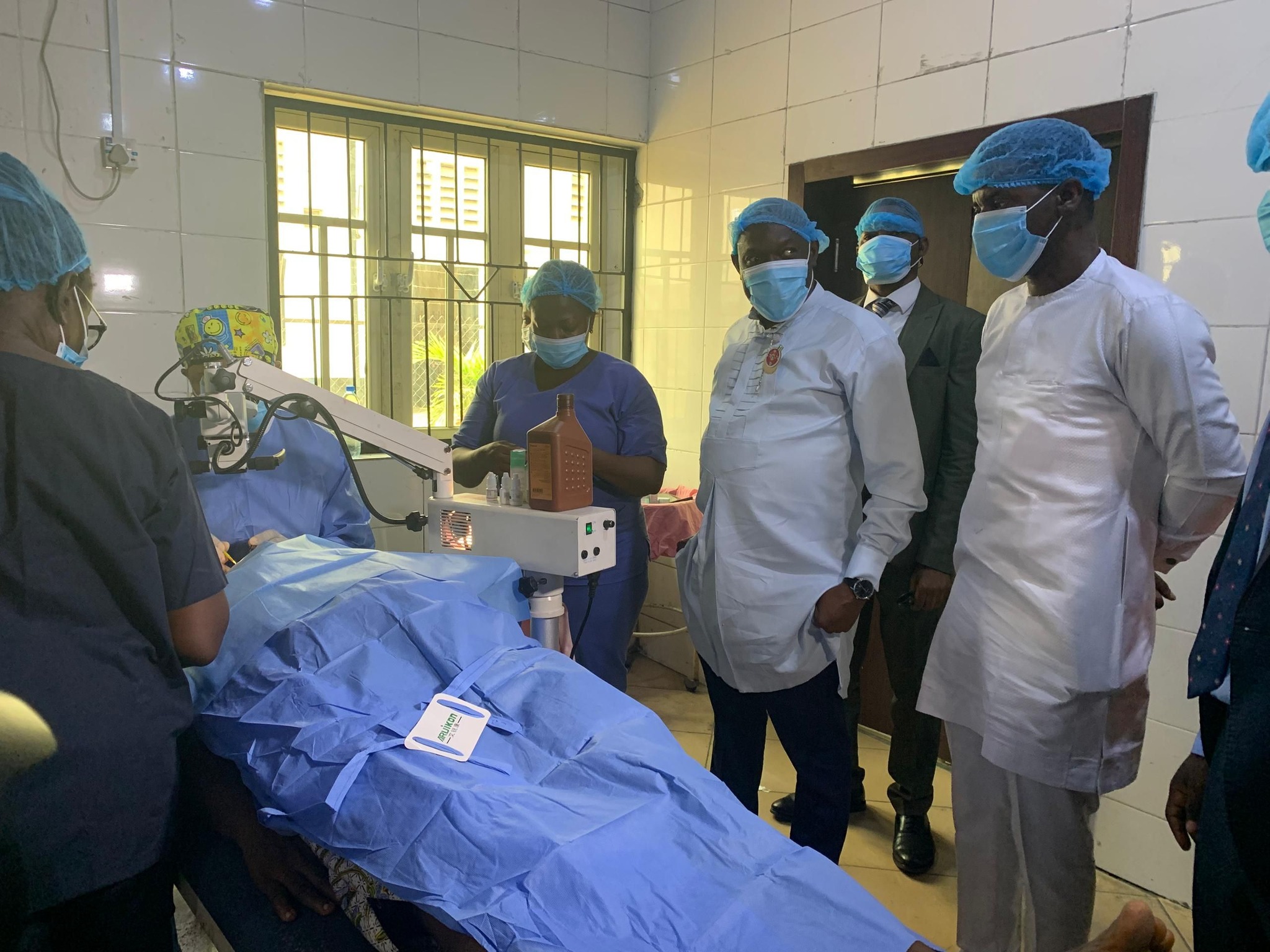The Project Coordinator of the Hydrocarbon Pollution Remediation Project (HYPREP), Professor Nenibarini Zabbey, has asserted that the Project, through its various public health programmes and interventions, is making it possible for Ogoni people to get access to quality healthcare services, committing to ensuring that the people have access to effective medical attention.
Professor Zabbey made this assertion today when he visited the Nchia General Hospital, the venue for the HYPREP free medical outreach, where medical services and surgical operations were carried out on patients with several ailments, including cataract, hernia, and fibroid.
The HYPREP free medical outreach which commenced on the 16th of December, 2024, is a special purpose vehicle (SPV) that has recorded a huge number of beneficiaries across the four LGAs. For instance, at the Nchia General Hospital where over 60 patients were scheduled for cataract operation today, the number shut up to over 100, prompting the Project Coordinator to direct an extension.
While reiterating the Project’s commitment to continue to prioritize the healthcare of the Ogoni people, the Project Coordinator announced that more public health programmes and projects would be rolled out and completed in 2025. Prominent among them are the completion and operationalization of the Buan Cottage and 100-bed Ogoni Specialist Hospitals which will provide primary and tertiary health services, the strengthening of Primary Healthcare Centres in Bodo in Gokana, Taabaa in Khana, Nonwa in Tai, and Onne in Eleme, the construction of a hostel and renovation of the K-Dere Health Centre to promote community medicine in the region and the start of the Public Health Study of Ogoni to be conducted by the International Agency for Research in Cancer-World Health Organization(WHO) in partnership will local institutions. The human biomonitoring study is expected to run for 3 years.
Similarly, the PC noted that a combination of HYPREP’s interventions in addressing environmental concerns, providing potable water, creating jobs and livelihood is its holistic approach to enhancing the health of the people, and added that the Project is providing value addition in its public health interventions beyond the recommendations of the UNEP Report on Ogoni. He hinted that the Project is collaborating with the Drosophila Institute, University of Ibadan, to carry out cutting edge research that would establish a correlation between the impact of hydrocarbon contamination on Ogoni people, noting that it will contribute significantly to advancing the knowledge of medicine in relation to hydrocarbon contamination globally.
Prof Zabbey stressed that the Project is implementing the UNEP Report based on the needs of Ogoni people.
“We are implementing all the recommendations of the UNEP Report and going outside to doing what is necessary following the emergence of new things.
“We are doing extra things, including conducting research and building the Ogoni Specialist Hospital. We feel it is important to advance access to medicare. We will continue to do our best to broaden the scope of our interventions based on the needs of the people while also implementing the UNEP Report”, the PC maintained.
